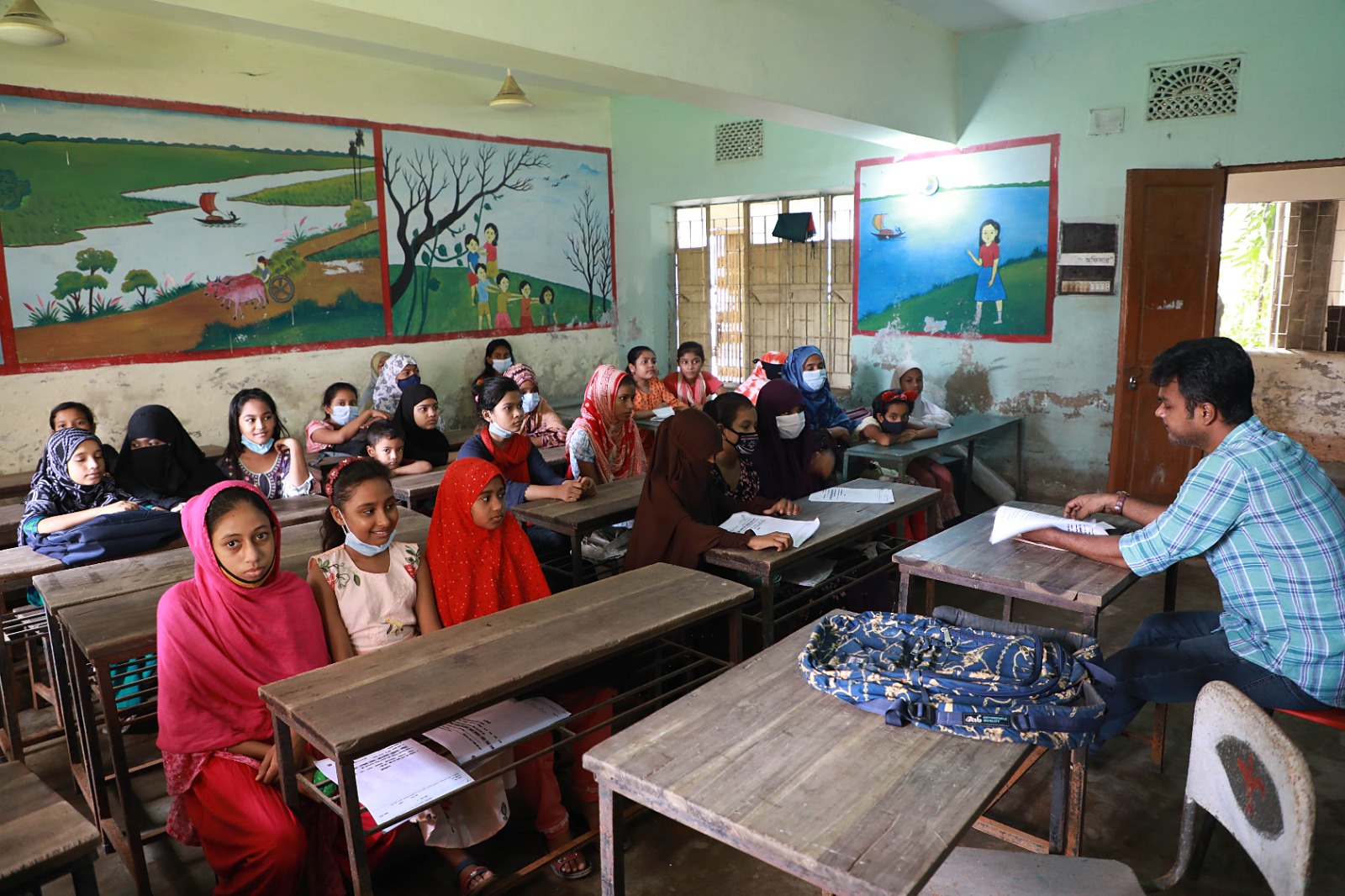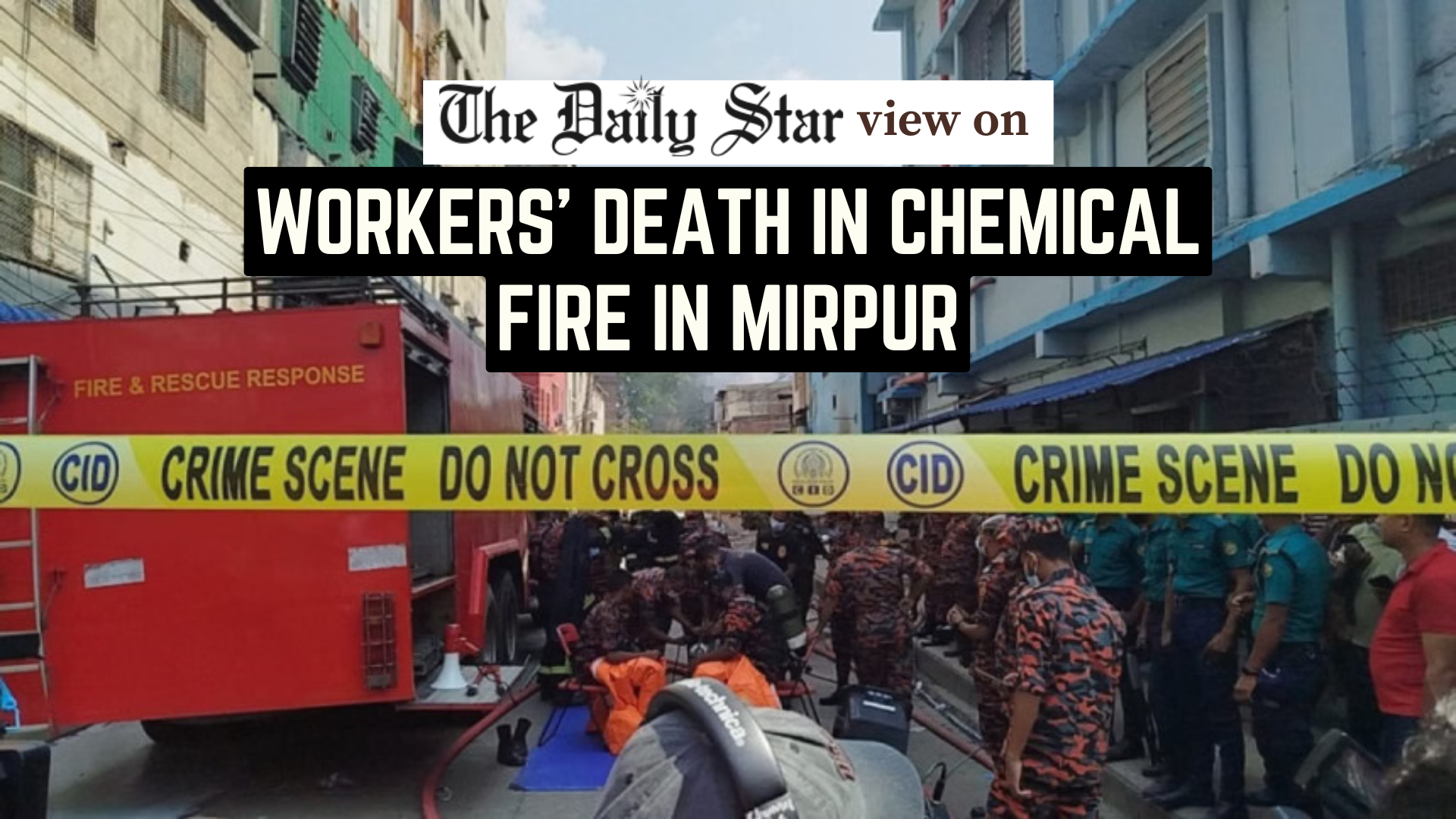When teachers are attacked and workers die, who takes responsibility?

Two deeply disturbing incidents occurred last week. In one, teachers took to the streets with minor demands but were met with police violence instead of dialogue. The situation remains uncertain at the time of writing this column on Friday evening. The other incident is that of the fire in Mirpur's Rupnagar. Despite repeated warnings and recommendations for reform, safety measures in factories are still not ensured. Once again, we have witnessed a factory fire and casualties. Both incidents are linked to the state's responsibility, its outlook, how it views its people, and where its priorities lie.
Let us first talk about the teachers. Their demands are very minor and basic. These include increases in house rent allowance, medical allowance, and festival bonuses. There are people who argue that an interim government cannot fulfil such demands. However, they fail to notice that the interim government has no problem allocating much bigger amounts for importing LNG and other products from the United States at prices higher than the international market, or allocating Tk 20,000 crore to merge discredited banks, or setting aside a big amount for bureaucrats. The government is also ignoring its interim status when pursuing long-term contract in favour of foreign business. For example, it is bringing in foreign companies to manage ports without accountability or legal procedure, imposing illogical tariffs to make the economy weaker. It is also planning to buy defence equipment. One wonders why the government's budget crunch theory does not apply to these cases or why no one asks how an interim government can take such decisions.
School and college teachers, especially those from MPO-listed or private schools, have been one of the most deprived sections of the people in Bangladesh. They repeatedly take to the streets to demand their mere survival salary. Their strikes, protests, or sit-ins on roads have been going on for years. Even during the previous government's tenure, teachers were lying on the streets and fasting for months on the roads, braving police attacks. False promises and the same "there's no money" argument were given by the previous government, too. Unfortunately, the same attitude of government continues to this day.
When this government presented last year's budget, many hoped that the long-standing neglect of the education sector, reflected in the current state of the MPO-listed teachers, would be addressed. If Bangladesh had spent anything close to international standards on education, teachers wouldn't be in such distress. So, we expected that a change would begin to take place in the last budget, that the education sector would receive priority. Instead, we saw that in the 2025–26 budget, allocation increased for government administration—spending went up for purchases, extra posts, foreign tours, etc. But for education and healthcare, which are essential for the people, the proportion of expenditure remained the same as under the previous government. Even a small increase in these sectors would have made it possible to meet the minor demands of the teachers.
What's worse is: over the years, different governments in Bangladesh have gradually pushed education towards commercialisation and privatisation. As a result, the sector is now in disarray, marked by discrimination and dysfunction. There are many streams of education: various kinds of madrasas, several types of schools, and different categories within private schools. Quality education requires extremely high spending in this highly commercialised education system, and discrimination begins from the primary level. The demand for a unified non-discriminatory education system that enhances people's potential has existed for a long time, but still remains unmet. If the state truly prioritised education, it would have allocated at least six percent of GDP, which is the international standard. But education allocation remains one of the lowest in Bangladesh: less than two percent.
Therefore, the current allocation in Bangladesh must triple; only then a widespread network of schools can be created across the country. With such a network under state responsibility, a common foundation for education can be established. The coaching centres, private schools, and the vast system of private tuition will no longer be necessary. Those involved in these areas can, instead of their current informal work, teach within the formal education system, carrying the badge of a dignified profession, while improving their expertise. Besides, the students, the children of Bangladesh, can develop their leadership within a unified structure. It will end the discrimination that only those with money can develop leadership, while those without cannot.
If education were given this importance, teachers would also have received their due respect. How can a country progress when neither education nor teachers are valued? How can it stand on a strong national foundation? We see the consequence of this neglect when teachers repeatedly have to take to the streets, and former students attack or beat them. The students of other teachers sit in the secretariat, indifferent, allowing these attacks to continue. We should never have had to witness such a situation.
As for the issue of labourers, this too is the responsibility of the state. Factories must ensure safety, with secure entry and exit and a safe working environment. This demand has been raised for a long time. For the lack of a minimum safety and monitoring system, we have witnessed tragedies like Rana Plaza and Tazreen. After those incidents, there was international attention and much agitation at home. But necessary steps to strengthen labour inspection, transparency, and monitoring are still missing! The whole monitoring system remains neglected, inefficient, and corrupt.
As a result, there are only about few hundred labour inspectors for the vast number of factories across Bangladesh. Inspections are practically non-existent. This means violations remain completely unaddressed. Factories are built without licenses, security, or safety systems. The recent incident in Mirpur began at an unapproved chemical factory. In recent years, we also saw repeated terrible fires in Old Dhaka, in Rupganj's Hashem Food and Beverage factory, and in Bailey Road. We witness these devastating incidents again and again and each time, the government forms an investigation committee, but the recommendations that follow are never implemented.
There had been expectations for change. The Labour Reform Commission had prepared a report containing several proposals. Implementing them would at least ensure that factories are regularised and compliance is digitised. There should also be accountability. Anyone operating outside the rules should face appropriate action. It was expected that this government would at least take these basic steps. Yet, in both the teachers' protest and the fire incident case, we see a striking lack of sensitivity and responsibility towards people's interests. This attitude, which existed even during the previous government, continues. Even hostility in response to public demands has changed little, which unfortunately leads to these painful and unacceptable incidents.
Anu Muhammad is a former professor of economics at Jahangirnagar University.
Views expressed in this article are the author's own.
Follow The Daily Star Opinion on Facebook for the latest opinions, commentaries and analyses by experts and professionals. To contribute your article or letter to The Daily Star Opinion, see our guidelines for submission.




 For all latest news, follow The Daily Star's Google News channel.
For all latest news, follow The Daily Star's Google News channel. 


Comments